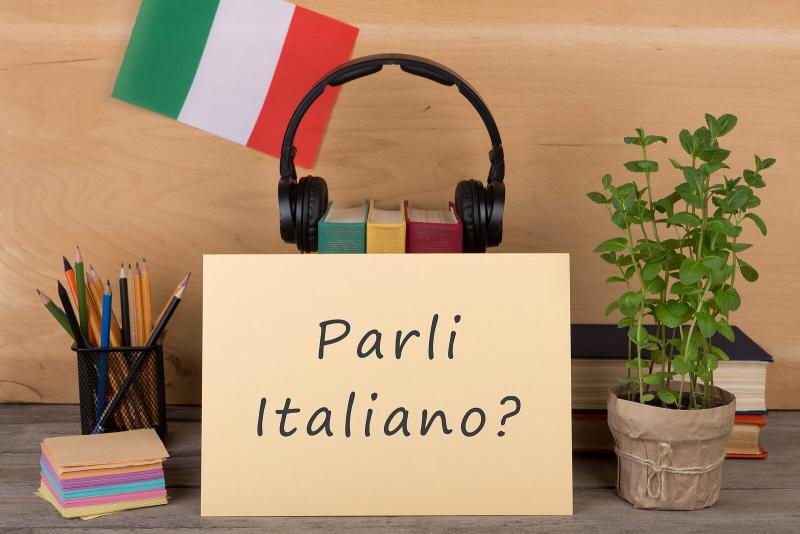Usually, coming to the end of something is, if not sad, a bit bittersweet. But nothing has been usual about the past 12 months and I think we can all agree that the world as a whole is ready to put an end to COVID-19, sweatpants as office wear, schooling from the kitchen table, and anything made with sourdough starter.
To talk about the end in Italian, there are three different expressions that may be confusing at first since they all use the same root - alla fine, finalmente, and infine. Despite sharing the same root of “fine” (or end), these three terms have different meanings and are rarely interchangeable so it’s important to know the difference between them and how they are used.
Read on for a helpful overview of how to use these three ending signalers and pick up some bonus tips!
Alla fine
Translated as “at the end” or “in the end”, alla fine indicates an action or event that happens last in a series of actions or events or after the passage of time.
Alla fine can be paired with a noun (in the possessive case) to specify the action or event that precedes it.
Examples:
- Alla fine dell’anno siamo andati a festeggiare in montagna. - At the end of the year, we went to the mountains to celebrate.
- Non ne potevo più alla fine della cena. Ho mangiato davvero troppo. - I couldn’t stand it anymore by the end of the dinner. I really overate.
You can also use alla fine without an object when it is implied.
Examples:
- Com’è finita? - How did it end? (When both parties know the subject?)
- Alla fine siamo andati a casa prima perché eravamo stanchi. - At the end (of an event or action that is known to both parties), we went home early because we were tired.
Sometimes you use alla fine to indicate the final outcome of an endeavor that requires a significant amount of time or effort. Though the noun isn’t specified, it’s implied to be “the time or effort you put in”. Italians often use it to ask for an update regarding an important, long-term goal or life event:
Examples:
- Avete comprato la casa in città alla fine? - (Did you buy that house in the city in the end?)
- Alla fine sei riuscito ad aggiustare la moto? - (Were able to repair the motorcycle in the end?)
Note: Don’t confuse alla fine with alla fin fine or in fin dei conti, which mean “all things considered” or “after all” and indicates a summing up or taking into account that leads to a slightly unexpected or unplanned conclusion.
Examples:
- Ho visto il film che ha vinto l’Oscar ma alla fin fine non era poi così interessante. - I saw the movie that won the Oscar but it wasn’t that interesting after all.
- In fin dei conti, non era poi così lungo il viaggio. - All things considered, the trip wasn’t really that long.
Finalmente
This adverb that means “finally” or “at last” can be used in a few ways:
Finalmente can indicate that an anticipated or expected action or event is finally happening.
Examples:
- Sono settimane che aspetto il pacco. Finalmente oggi è arrivato! - I’ve been waiting for this package to arrive for weeks. Finally it came today!
- Dopo tanti ripensamenti, finalmente abbiamo deciso di traslocare. - After a lot of second thoughts, we finally decided to move house.
It can also be used alone as an exclamation of satisfaction that something has come true.
Examples:
- Abbiamo deciso di traslocare. - We decided to move house
- Finalmente! - Finally!
Infine
Translated as “in the end”, “eventually”, “in conclusion”, or “lastly”, infine has two main meanings:
Infine is most often used to indicate that a text, story, presentation, speech, or other communication is drawing to an end, and is interchangeable with in conclusione (in conclusion).
Examples:
- Infine, vorrei ringraziare la mia famiglia e i miei colleghi. - Lastly, I would like to thank my family and colleagues.
- Infine, i tre fratelli decisero di tornare al loro castello. - Eventually, the three brothers decided to return to their castle.
You can also fine infine at the end of a list of steps to follow in a set of directions or a recipe:
Examples:
- Infine, fissa lo specchio al mobile usando gli appositi ganci. - Finally, affix the mirror to the cabinet using the special hooks.
- Infine, inforna il dolce a 180°C per 60 minuti. - Finally, bake the cake at 180°C for 60 minutes.
Synonyms
Occasionally, alla fine, finalmente, and infine can be used interchangeably:
Finalmente can be used instead of infine or alla fine, but it’s not very common.
Example:
- Ho vissuto prima a Roma, poi a Napoli e finalmente a Palermo. - I have lived in Rome, then Naples, and finally in Palermo.
The much more common versions would be:
- Ho vissuto prima a Roma, poi a Napoli e alla fine a Palermo. - I have lived in Rome, then Naples, and finally in Palermo.
- Ho vissuto prima a Roma, poi a Napoli e infine a Palermo. - I have lived in Rome, then Naples, and finally in Palermo.
In formal speech, infine can substitute alla fine.
Example:
- Bombardarono per giorni, e infine la città cadde. - They bombed for days and the city eventually fell.
In fine, we hope that you find this guide helpful to navigate your way to the end!













